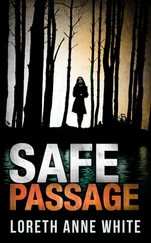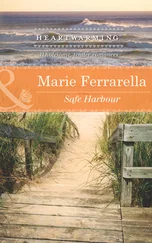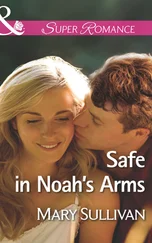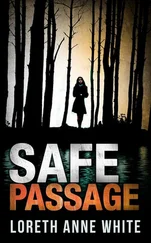First published as We Followed Our Stars
IDA COOK
New foreword by
ANNE SEBBA
Afterword by
JENNY HADDON
To my Incomparable Parents without whose loving and common-sense upbringing we should never have been capable of doing the things described in this book.
FOREWORD Contents Cover Title Page Dedication Foreword Chapter One Chapter Two Chapter Three Chapter Four Chapter Five Chapter Six Chapter Seven Chapter Eight Chapter Nine Chapter Ten Chapter Eleven Chapter Twelve Chapter Thirteen Chapter Fourteen Chapter Fifteen Chapter Sixteen Afterword Copyright
Romance is not just about love. It’s about an attitude to life, and there is little more romantic than a profound faith in the possibility of all things. It could be a belief that when you kiss the ugly toad he will turn into a handsome prince, just as much as a conviction that if you do the right thing you can, against all the odds, save a life. What could be more romantic than helping people, strangers, otherwise condemned to likely death, escape their own country and survive in a new one? For Ida and Louise Cook the spirit of hope, the conviction that everything would come all right in the end, was the essence of life. It pervades the romantic novels written by Ida, but it also guided the daily existence of both sisters. No matter what evils they encountered in the world, what remained constant for them was hope.
Thirty years after the death of romantic novelist Ida Cook such faith seems more necessary than ever. Their story has particular resonance today, at a time when Europe is facing the biggest refugee crisis since World War Two and many countries are being asked to provide shelter for hundreds of thousands of homeless people fleeing despotic regimes and torture. Britain has a reputation for tolerance, of being a country which has absorbed small movements of people in the past such as the Huguenots—French Protestants who came in their thousands—in the late 17th century. But in the years leading up to World War Two, although there was some sympathy for the plight of Jews trying to escape Nazi brutality in Austria, Germany and Czechoslovakia, there was also considerable hostility and above all, fear. Far from opening its doors to all those in need, the Government introduced tightly controlled entry visas designed to keep out more people than it let in. Today, the numbers seeking entry to Britain and other European countries from the Middle East and Africa are incomparably greater, but the arguments against allowing refugees or asylum seekers into the country are depressingly familiar: are they genuinely in need of asylum or are they economic migrants? If we welcome them will they “fit in” to our culture, or will they take our jobs? Fear of the other often remains a stronger emotion than sympathy.
Ida and Louise were not concerned with numbers or demographics. Fear they banished from their minds. When I first discovered We Followed Our Stars it was the unshakeable faith of Ida and Louise Cook that they could make a difference which hooked me immediately. It was the artless innocence of two young women flying to another country—at a time when flying itself was dangerously new—and defying that country’s laws to help desperate people they did not know, that made such a profound impression. I was moved by the sisters’ certainty, so rare today in a world where moral equivalence holds sway, that they knew without any ambiguity a clear difference between right and wrong. Since then, in the course of my own research into this period, I have come to recognise a hunger to share stories that many who lived through those years may have nurtured silently for almost a lifetime; yet they recognise that now this is their final chance before the generation that lived through the last War has died out, to share those emotions and experiences.
Ida and Louise Cook were born in Sunderland, northeast England, at the beginning of the last century; Louise, quieter and more intellectual, in 1901; Ida, naturally garrulous, three years later in 1904. Both came to maturity during the harrowing years of World War One, a war which wiped out almost an entire generation of young men in England. They were two ordinary women who lived in extraordinary times, spinsters who knew there would not be enough men available as husbands and who were unfazed by that; determined to live meaningful lives, lives that were more fulfilled than those of many other women at the time.
In the pages that follow there are innumerable examples of their pluck, to use an almost forgotten contemporary word. How Louise would leave her drab civil service office on a Friday evening, dash to Croydon Airport for the last plane to Cologne, then the night train to Munich, where they would, with luck (Ida often credits things going right to good luck, too modest to recognise it was good planning instead), arrive for breakfast on Saturday morning. Minor inconveniences such as toothache and overdrafts were ignored. They spent so much of their own money on these rescue missions that Ida admits towards the end of the book she was £8,000 in debt (equivalent to over £300,000 today).
Money was never one of their gods. They designed and sewed their own clothes, travelled third class and, even when Ida, known as Mary Burchell, became one of Mills & Boon’s best-selling authors earning almost £1,000 a year from her novels, they still usually sat in the gallery rather than the stalls of their beloved Covent Garden. “We spent thousands in our imagination,” she wrote when her advance for two books was a mere thirty pounds. By the time she was earning thousands, she had other ideas.
The problem they were confronting was that the British Government, since the Nazi seizure of power in 1933 when Jews had been gradually stripped of all rights, had allowed very few Jewish refugees to flee to Britain, and then only if financial guarantees for their future stability were in place. The situation deteriorated dramatically in November 1938 following the outburst of violence at Kristallnacht , when thousands of Jewish homes and businesses in Germany were destroyed and looted. This night of carnage shocked many British people who until then had ignored the plight of the Jews in Germany and Austria. The British Government now agreed to ease immigration restrictions for Jewish children but were still not prepared to allow unlimited entry for adults, many of whom found it impossible to leave. In this crisis private citizens or organisations had to come up with guarantees to pay for each child’s care and education or, for an adult, to provide assurances that they had means of support and would not be a burden on the public purse. For a woman, this usually meant entering domestic service. Adult men, accepted in Britain only if they had documentary proof that they were in transit, therefore faced the direst problems. Thousands, unable to leave their homeland, were later murdered. Such a domestic policy is not one to be proud of and some of those urging a more active response to today’s global refugee crisis are acutely aware of where we failed seventy years ago.
Ida and Louise, partly in order to make financial guarantees easier and partly because they recognised that those they were rescuing hated the idea of living off charity, offered to smuggle out valuables—mostly jewellery and furs for sale so that the refugees could have something to live on once they arrived in England. But in late 1930s Nazi Germany, smuggling currency or valuables was a serious crime. By helping opponents of the regime, as they did on at least one occasion, they risked their own lives. Yet the only precaution they took was to vary their return journey—perhaps coming home through Holland, catching the night boat and arriving at Harwich early on Monday morning so that Louise could walk into her office just in time. Their only weapon: faith in their dark blue British passports.
Читать дальше
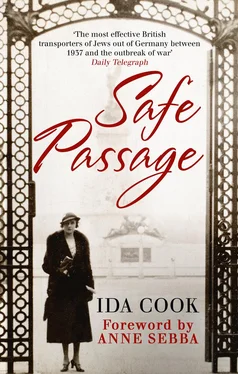
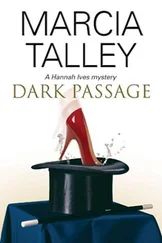

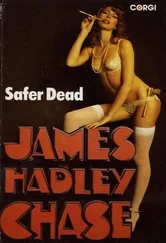

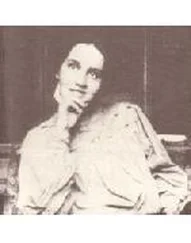
![Джеймс Чейз - Not Safe to Be Free [= The Case of the Strangled Starlet]](/books/417649/dzhejms-chejz-not-safe-to-be-free-the-case-of-the-thumb.webp)
